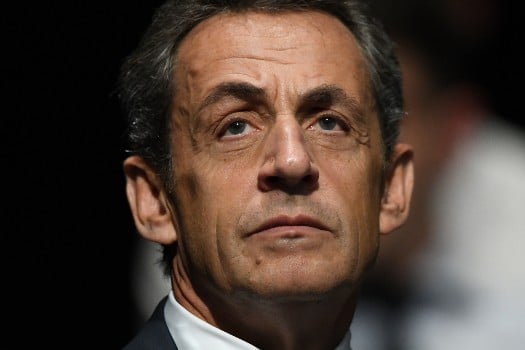Hollande also met with senior figures in his Socialist party to gear up for next month’s parliamentary vote in which he hopes to win a majority of seats to help him push through his reforms.
He also hunkered down with aides on forming a government and preparing for his first foreign visit, to Berlin, where he is expected to get a frosty reception over his plans to renegotiate the European fiscal austerity pact.
Sarkozy’s cabinet meeting was “emotional”, participants said, with ministers giving the outgoing president a standing ovation after he told them he wished Hollande “good luck” following his election win on Sunday.
“Nicolas Sarkozy’s main commitment in 2007, to put France on the move, has been met,” Prime Minister Francois Fillon said after the session.
“We did this with a number of reforms that no one else managed, and we did it during a climate of crisis.”
Government spokeswoman Valerie Pécresse said Fillon would tender the cabinet’s resignation on Thursday and that it would take effect when Hollande is inaugurated on May 15.
Hollande meanwhile met with senior party officials at his campaign headquarters, where talks focused on securing the Socialists a majority in the two-round parliamentary vote on June 10 and 17.
“We are closing one period and opening another, that of the parliamentary elections,” party leader Martine Aubry told journalists. “It is important not to slacken our efforts.”
Winning in June will be crucial for the Socialists as the president requires a parliamentary majority to maintain a government – otherwise the prime minister is in charge of the cabinet.
Sarkozy’s ministers were also starting to focus on the vote, with the trade and tourism minister, Frédéric Lefèbvre, saying the centre-right UMP was confident of claiming a majority in parliament.
“Five weeks from now is the moment of reconquest, five weeks from now is the road to hope,” he said.
Sarkozy indicated on Sunday that he was retiring from frontline politics.
His communications advisor Franck Louvrier said Sarkozy was preparing to return to his former life as a lawyer at the Paris firm he still partly owns, after taking a break with his wife Carla Bruni and their baby daughter.
Hollande is facing a packed international agenda after his inauguration and pressure was already building on the Socialist to stand by France’s austerity commitments.
He met EU president Herman Van Rompuy on Wednesday at his party’s headquarters in Paris. There was no statement afterwards and the EU leader headed off to the Elysée to talk with Sarkozy.
Hollande is also to have talks with the head of the Eurogroup of eurozone finance ministers, Luxembourg Prime Minister Jean-Claude Juncker, on Thursday.
The talks were expected to centre on Hollande’s vows to refocus European economic policy on growth by re-opening talks on the EU’s fiscal austerity pact – a move ardently opposed by Germany.
German Chancellor Angela Merkel has made clear she will not renegotiate the pact setting tough budgetary rules for EU states, which she spearheaded along with Sarkozy.
In a letter to Hollande on Tuesday, she welcomed talks with the Socialist but said Europe was counting on France and Germany to take the “necessary decisions” to resolve the debt crisis.
European Commission chief Jose Manuel Barroso also said Wednesday that there would be no renegotiation of the pact.
Hollande promised cheering supporters Sunday he would reopen talks to ensure the pact focused on growth rather than simply imposing deficit-cutting austerity rules.
Van Rompuy is to host an informal dinner of the bloc’s leaders on May 23 ahead of an EU summit on June 28 and 29 that is expected to focus on growth.
Observers say there will be room for compromise as Hollande may accept additional measures to foster growth while retaining the pact’s original wording.


 Please whitelist us to continue reading.
Please whitelist us to continue reading.
Member comments